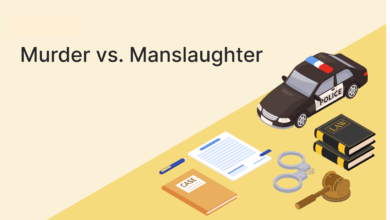Domestic Violence Defense in Washington State: Know Your Legal Rights
Domestic violence defense in Washington State requires expert legal help. Protect your rights and avoid harsh penalties with a skilled defense.

Domestic violence defense in Washington State requires immediate and strategic action to protect your rights and future. Facing domestic violence allegations can be overwhelming, with potential consequences ranging from jail time and hefty fines to loss of child custody and firearm rights. Whether the accusations stem from misunderstandings, false claims, or heated arguments, understanding Washington’s complex domestic violence laws is crucial. The state aggressively prosecutes these cases, often issuing no-contact orders and mandatory arrests before all facts are known. This makes securing experienced legal counsel not just advisable but essential from the very first accusation.
Domestic violence defense in Washington State involves navigating a legal system where even misdemeanor charges carry severe, life-altering penalties. Prosecutors frequently pursue cases even when alleged victims recant, meaning the accused must build a strong defense regardless of the circumstances. From challenging evidence and witness credibility to negotiating plea deals or pursuing dismissals, every case demands a tailored approach.
Domestic Violence Defense in Washington State
Understanding Domestic Violence Charges
Domestic violence (DV) in Washington State is not a standalone crime but rather a classification applied to certain offenses when they occur between family or household members. These offenses can include assault, harassment, stalking, reckless endangerment, or violation of protection orders. Under RCW 26.50.010, domestic violence encompasses acts committed by one family or household member against another, including spouses, domestic partners, dating partners, parents, children, and roommates.
Types of Domestic Violence Offenses
Assault (RCW 9A.36.031)
Any intentional physical harm, attempted harm, or threat of immediate harm against a family or household member. Includes hitting, shoving, choking, or any unwanted physical contact.
Harassment (RCW 9A.46.020)
Unwanted conduct that alarms, annoys, or torments a household member. Includes Repeated threatening calls/texts. Verbal threats of harm.Following or surveilling someone.
Stalking (RCW 9A.46.110)
A pattern of harassment, monitoring, or intimidation causing fear. Includes Repeatedly showing up uninvited. Cyberstalking (tracking social media, GPS). Sending unwanted gifts/letters.
Violation of a Protection Order (RCW 26.50.110)
Ignoring a no-contact order, restraining order, or protection order issued by the court. Includes Contacting the protected person (even if they reach out first). Showing up at their home/work. Indirect contact through third parties.
Reckless Endangerment (RCW 9A.36.050)
Conduct that creates a substantial risk of death or serious injury to a household member. Examples of Driving dangerously with them in the car. Brandishing a weapon recklessly. Leaving a child in a life-threatening situation.
Potential Penalties for Domestic Violence Convictions
Jail or Prison Time
Domestic violence cases can be charged as either misdemeanors or felonies, depending on the severity of the alleged offense and your criminal history. Misdemeanor DV Convictions (such as fourth-degree assault or first-time harassment) can result in up to 364 days in county jail and fines reaching $5,000. Felony DV Convictions (involving serious bodily harm, strangulation, or repeat offenses) may lead to multiple years in state prison, with some charges carrying sentences of 5 to 10 years or more.
Heavy Fines and Court Fees
In addition to possible jail time, a domestic violence conviction comes with significant financial burdens is Court-imposed fines (ranging from hundreds to thousands of dollars). Mandatory domestic violence assessment fees (typically 100−300). Costs for court-ordered treatment programs (such as batterers’ intervention, which can exceed $1,000). Restitution payments to the victim for medical billing, counseling, or damaged property.
No-Contact Orders and Loss of Family Rights
Almost all domestic violence cases in Washington result in a no-contact order, which legally prohibits you from Communicating with the alleged victim (even through third parties). Visiting their home, workplace, or school. Seeing your children if the court deems it unsafe.
Common Defense Strategies in Domestic Violence Cases
False Allegations and Lack of Evidence
Many DV cases arise from misunderstandings, heated arguments, or false accusations. If the prosecution lacks physical evidence, witness testimony, or credible proof, the charges may be dismissed.
Self-Defense or Defense of Others
Washington law permits reasonable force in self-defense if you believed you were in imminent danger. Proving this requires demonstrating that your actions were necessary to protect yourself or someone else.
Improper Police Procedure
If law enforcement failed to read Miranda rights, conducted an unlawful search, or made an arrest without probable cause, evidence may be suppressed, weakening the prosecution’s case.
Consensual Altercations
In some cases, both parties engaged in mutual conflict without one being the primary aggressor. If the alleged victim does not cooperate, prosecutors may struggle to prove guilt beyond a reasonable doubt.
Mental Health or Substance Abuse Factors
If the accused was suffering from a mental health crisis or intoxication, an attorney might argue for diversion programs or reduced charges rather than incarceration.
Steps to Take If Charged with Domestic Violence
Remain Silent and Avoid Self-Incrimination
The moment you are arrested or questioned by law enforcement, exercise your right to remain silent. Anything you say—even if you believe it is harmless can be used against you in court. Politely inform officers that you wish to speak with an attorney before answering any questions. Avoid discussing the case with anyone other than your lawyer, including friends or family, as they could be subpoenaed to testify.
Strictly Comply with No-Contact Orders
Washington courts often issue emergency no-contact orders (also called protection orders) in domestic violence cases. Violating this order even if the alleged victim contacts you first can result in additional criminal charges. Follow all court-imposed restrictions, including staying away from the protected person’s home, workplace, and any shared children (if applicable). If modifications are needed, your attorney can petition the court on your behalf.
Attend All Court Hearings and Follow Legal Advice
Missing a court date can lead to a bench warrant for your arrest, worsening your legal situation. Attend every hearing, dress appropriately, and behave respectfully in court. Follow your attorney’s guidance on how to proceed whether that means negotiating a plea bargain, seeking a diversion program, or fighting the charges at trial.
Avoid Social Media and Public Discussions About the Case
Prosecutors and law enforcement often monitor social media for evidence. Avoid posting about your case, discussing it online, or venting frustrations in public. Even innocent posts can be misinterpreted and used against you.
Read More: Navigating the U.S. Immigration Process in California a Step-by-Step Legal Guide
Conclusion
Domestic violence defense in Washington State demands immediate action and knowledgeable legal representation to protect your rights and future. The consequences of a domestic violence conviction can be severe and far-reaching, affecting your freedom, family relationships, employment opportunities, and reputation. By understanding the legal process, potential defenses, and your rights under Washington law, you put yourself in the strongest position to fight these serious allegations. Remember, an accusation is not a conviction – with the right defense strategy, many cases can be successfully challenged or mitigated.
Domestic violence defense in Washington State requires experienced legal guidance at every stage of your case. From the initial arrest through potential trial, having a skilled attorney who understands Washington’s complex domestic violence laws can make all the difference in your case’s outcome. If you or someone you know is facing domestic violence charges, don’t wait to seek help – contact a qualified defense attorney immediately to start building your strongest possible defense. Your future may depend on the actions you take right now to protect your legal rights.
FAQs
Can domestic violence charges be dropped in Washington?
Yes, but only the prosecutor can dismiss charges. Even if the alleged victim recants, the state may proceed with the case.
What is a no-contact order in a DV case?
A court order prohibiting communication with the alleged victim. Violating it can result in additional criminal charges.
Is domestic violence a felony in Washington?
It can be, depending on the severity of the offense, prior convictions, or whether serious injuries occurred.
Can I own a gun after a DV conviction?
No, federal and state laws prohibit firearm possession for those convicted of misdemeanor or felony domestic violence.
How can a lawyer help in a DV case?
An attorney can challenge evidence, negotiate plea deals, or seek case dismissal, minimizing penalties and protecting your rights.











